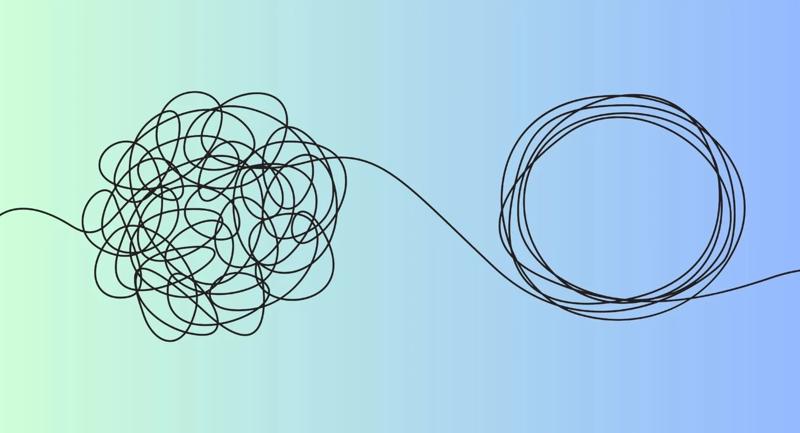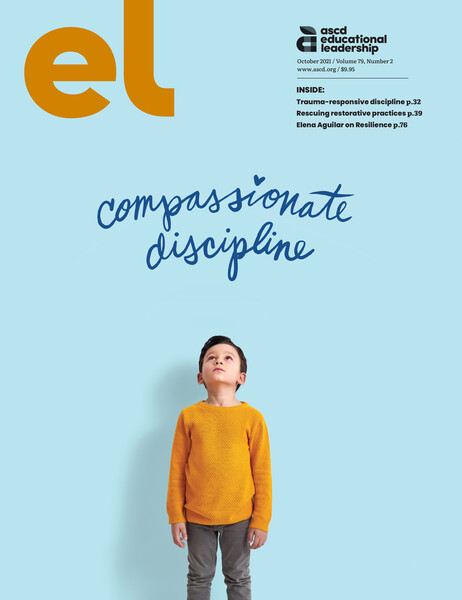This fall marks my 27th year working in the field of education—and since that first year of teaching, I’ve been studying resilience in educators. I’ve observed my own resilience dip and surge, and I’ve coached many teachers and school leaders in cultivating their own resilience. I’ve also written a book on this subject (Onward: Cultivating Emotional Resilience in Educators (John Wiley & Sons, 2018). And yet I’ve never learned as much about resilience as I did during the 2020–2021 school year. I’m still processing this learning, but have a few preliminary conclusions.
I share these with you now, as this new school year gets fully underway, in the hopes that you might reflect on your resilience and consider how to shore it up. None of us could have predicted the coronavirus pandemic, but that’s the thing about crises—they’re rarely predictable. We will always encounter uncertainty, adversity, and unexpected events in our personal and professional lives. Hopefully we will never experience another school year as challenging as 2020–2021—and yet, we might. Whether the challenges that come our way are the size of a pebble or a mountain, we can all benefit from boosting our resilience.
First, a definition: Resilience is the ability to thrive and not just survive. It’s how we deal with adversity—by drawing on our inner resources so that we can emerge from a tough time stronger and better equipped to deal with setbacks or challenges. A resilient person doesn’t just muscle their way through a tough moment; a resilient person experiences and expresses a wide range of emotions and intentionally takes a number of actions to get through that moment.
So here are three things a resilient educator does. While these are based on what I’ve learned in the last year and a half, they affirm a career’s worth of research.
1. A Resilient Educator Reflects
When we slow down and reflect, we seek a deeper understanding of ourselves. We want to unpack our thoughts, feelings, and actions, and this process of reflection yields insights that we can act on. The most resilient educators whom I coached in the 2020–2021 school year were those who paused and explored their experiences and emotions, and who through that process were able to say things like, “I need to prioritize building community with my students,” “I love teaching—just not virtual teaching,” and “I want to make a change in my work life.” Every teacher will come to their own unique insights, but it’s the process of reflection that cultivates resilience.
Resilience Tip
When we can take actions that are aligned to our core values, we feel more confident, competent, and able. We build resilience.
Reflection can happen with someone else—a coach, colleague, therapist, or friend; or it can happen independently—through writing or another form of processing. Consistency is key. Reflection is a practice, and the more you do it, the deeper you go. It can feel uncomfortable, and you can arrive at conclusions that are hard to accept (one teacher I coached last year decided she needed to leave the classroom), but you also arrive at truths. Truths are empowering.
How can you prioritize reflection this year? Which structures can you establish to ensure that you have time and space to reflect? For example, can you plan for a monthly gathering with colleagues? Could you commit to 10 minutes on a Friday afternoon to journal about the week?
2. A Resilient Educator Sets Boundaries
In the beginning of the pandemic, I saw educators work more hours than they ever had before. New schedules had to be made, new technology had to be learned, a new curriculum had to be created, and so on. There was a lot of fear about how the pandemic would impact children’s learning—and there was a sense of urgency and pressure to get it right. Then I saw depression, anxiety, and burnout skyrocket. Of course, there was a lot to be sad and scared about. But the educators I observed who quickly curtailed the symptoms of burnout were those who set boundaries. They said, “I can’t make a 7:00 p.m. meeting even if it’s on Zoom.” “I’ve been in front of the computer all day, so I’m not going to come to the staff social on Zoom.” “I’m not working this weekend.” They set boundaries with their families, with work, and around their own expectations for themselves. Boundaries preserve our energy.
Which boundaries do you need to set for this year? What might be possible if you held firm to those boundaries? What would you do with the energy you’d retain?
3. A Resilient Educator Is Clear on What Matters Most
In challenging times, we are pushed to make decisions, often without having all the information we want or need. These decision-making moments can send us into a tailspin, questioning ourselves, deliberating endlessly, or acting impulsively—and sometimes we don’t make the best decisions. Think about all of the decisions you had to make in the 2020–2021 school year. How do you feel about those now?
Resilient educators are clear on what matters most and forge ahead in ways that are aligned to their core values. This means that decision-making moments don’t drain them; in fact, they become opportunities to connect with what’s most important. In challenging situations, we often feel disempowered. But when we can take actions that are aligned to our core values, we feel more confident, competent, and able. We build resilience.
What matters most to you? What are your core values? How do you live your core values? How can your core values guide the decisions you need to make this school year?
Many of us are eager to get back to something like “normal.” I get it. And yet, our world has changed. We’ve changed. That’s sad and scary and painful, and there is so much for us to learn about ourselves, our communities, and our resilience. If we could gather those lessons and apply them, everyone would benefit.
As you move into this new school year, I hope you’ll find time to reflect on last year, on who you are now, and on what you want to create in your life and in your school going forward. In doing so, you’ll build resilience—and when that next obstacle presents itself in your path, you’ll have more resources to navigate it.







